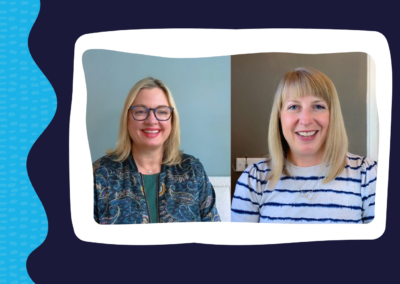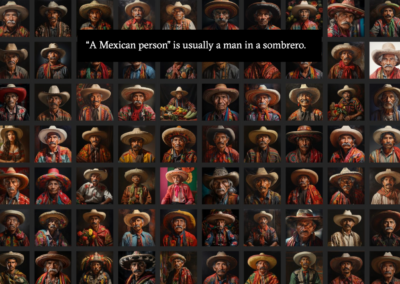Catherine Traffis came to her flourishing writing career by way of…classical piano.
“It’s kind of unusual that I don’t have English degrees,” says Catherine, who graduated from the University of Toronto with a Bachelor of Music degree and a Master of Arts in Musicology. But she hails from a family of writers, and an early job as a junior copy editor at Classical Music Magazine set her on her wordsmithing path.
For years she moved through writing and editing jobs, both abroad and in the U.S. and Canada, establishing her reputation as a skilled grammarian with a finely tuned attention to detail. She ghost wrote and copy edited books, articles, and blogs—anything her growing client base needed. Freelancing suited her lifestyle, especially when she ultimately settled down in Parker, Colorado with a husband and three children. It allowed for a flexible schedule.
“I had planned to scale down when I had my youngest and slowly build up hours again,” Catherine says. “And it was all a magnificent plan.”
Then, in 2011, a catastrophic car accident brought that plan to a devastating halt.
The moment when life changed forever
Catherine was driving with her 10-year-old son when a distracted teen driver plowed his Ford Expedition into their small car. “The way that this guy hit me—I would have T-boned him, but I tried to turn,” she says. “So I ended up breaking my neck all the way left and all the way right.”
While Catherine’s C2 vertebra was broken on both sides, her head was still attached to her body by just her spinal cord and tissue. Doctors call this a “hangman’s fracture.”
“I was conscious the whole time,” she says. “I heard it break, and it was agony.”
While her son sustained some problematic injuries, Catherine’s situation was life-changing. Doctors were perplexed that she’d survived such a severe spinal trauma, and she was laid up for an entire year.
During this time, her medical team asked her to make an impossible decision. She could undergo an operation to mend her fractured spine with a titanium plate, or she could forgo the procedure and risk death if she ever took a hard fall.
But the operation had its own serious risks. She might lose the ability to swallow and probably would never be able to eat solid food again. She might even lose the ability to speak.
Either way, doctors told her that she should go on disability immediately. “The prognosis was that I would never work again,” she says. Though she could talk and move around, she would always have a combination of physical pain and neurological symptoms that would prevent her from working in an office.
“Sometimes I can move the wrong way, and the whole left side of my body will go numb,” she says. Or, someone might bump into her with their cart at Target and set off a bout of intense and long-lasting pain.
Finding a way back to her career
Catherine’s doctors were right that living with this injury wasn’t conducive to office life. But she couldn’t tolerate the idea of not working, and she specialized in completing projects she could do from home. She decided against the operation, which had risks that didn’t balance the possible rewards. And she set about getting on with her life.
“I wasn’t just going to sit down and do nothing,” she says. “I ended up gradually adding hours back into my schedule as I felt I could manage them. And I got very into yoga and figured out ways that I could understand what was happening with my body, so that I could create a work environment where I could sit as I need, stand as I need, and lay down as I need.”
Still, the freelance writing life comes with its share of challenges, even for people with perfectly working bodies. Juggling invoices among many clients, unpredictable hours, unsteady income, and the constant need to negotiate rates began to take a toll on Catherine. Doing it all while managing her health was becoming burdensome, and as she faced the reality of three college tuitions on the horizon, her financial challenges were also mounting.
Through a creative agency, Catherine began working indirectly for a global software company. And that’s where she met a high-level consultant who made a career-changing recommendation: Try working with We Are Rosie.
Within weeks, Catherine went from juggling lots of clients (and invoices, pay rates, etc.) to a steady, high-paying contract with one client. And it was the very software company she’d already been working for indirectly. With Catherine’s previous experience and knowledge of their style guide, Rosie was able to secure her a long-term contract with them.
When a little support makes a big difference
“This is the first time since 2011 that I’ve been able to work 40 hours,” says Catherine, who’s coming up on two years with the software company. “But the thing that I’m really grateful to Rosie for is that it’s a very accepting environment, not just for women but for people who may be neurodiverse.”
We Are Rosie understood that some contractors don’t just want to work from home—they need to. And their challenges shouldn’t preclude them from the pay rates they deserve.
“They said, right off the bat, ‘If you’re a bit different, or if you’ve had barriers to achieving the kind of salary and platform and recognition that you feel like you’ve needed, this is the place,’” she recalls.
Catherine hasn’t felt the need to mention her physical challenges to her new team. She makes herself available to chat during the company’s core working hours; but if she’s experiencing health issues, she completes tasks when she can. She has the flexibility to work an hour on and an hour off, even if it means toiling into the night.
“I even have this reMarkable tablet so that if I can’t sit at the computer anymore, I can write on this,” she says. “I can send PDFs to myself and then apply OCR [optical word recognition].”
She hopes and plans to remain with the company for as long as she can. “I’ve really invested a lot in learning their ways,” she says. “I like the things they’re doing in the world and I love the team that I’m on.”
Only recently, in a company survey, did Catherine disclose that she has a disability that people can’t see.
“I made light of it by saying that I don’t have my head on straight,” she says, laughing. “I don’t—it’s actually two millimeters to the left! But I’m very lucky.”



